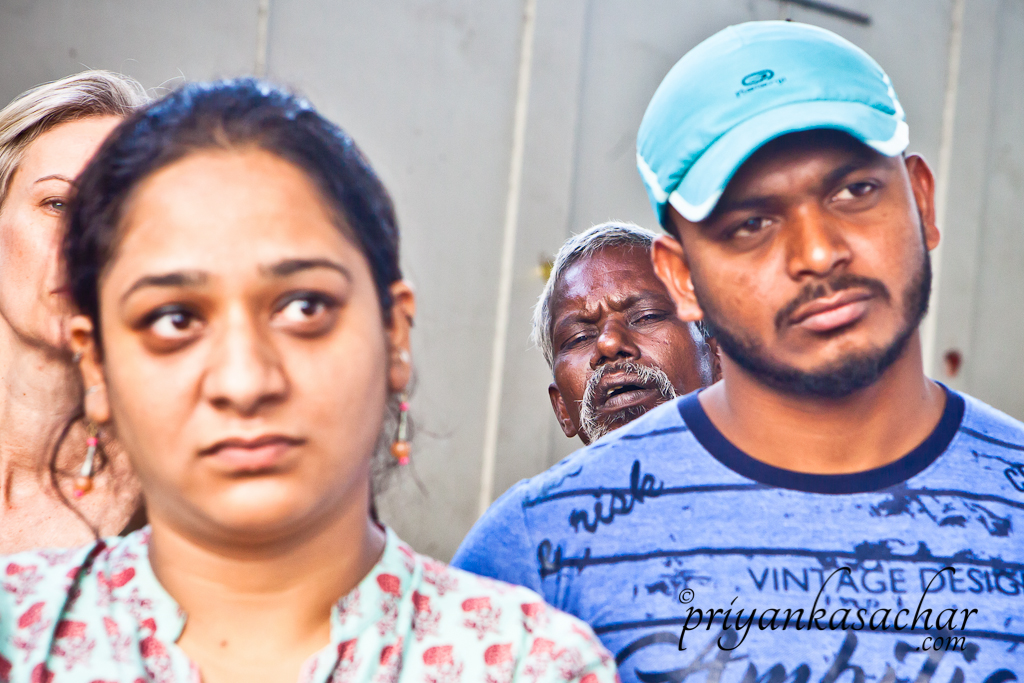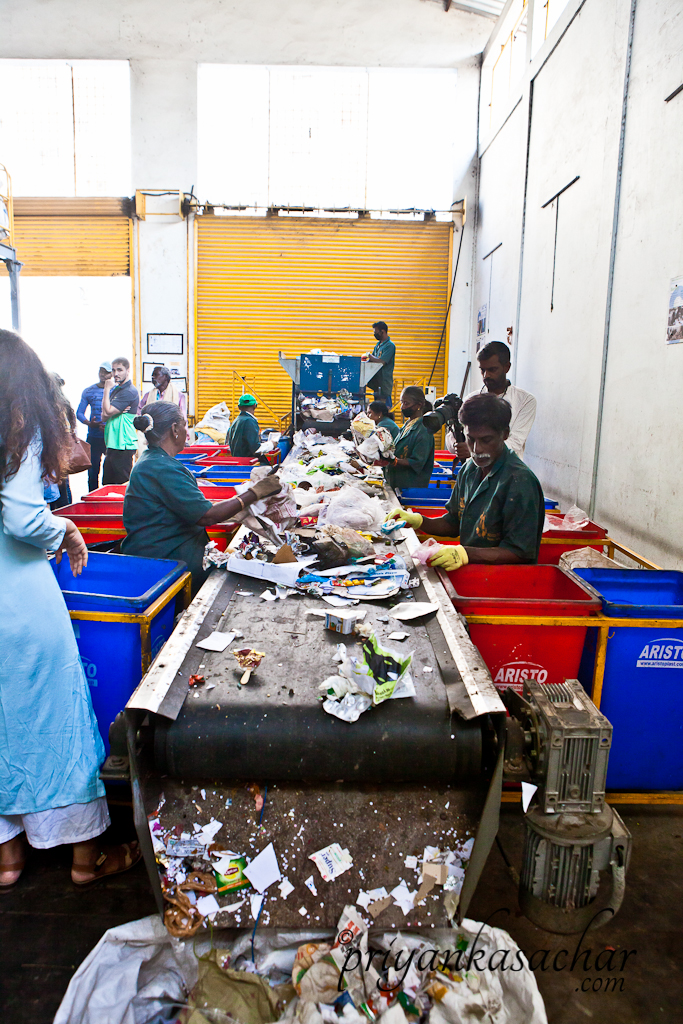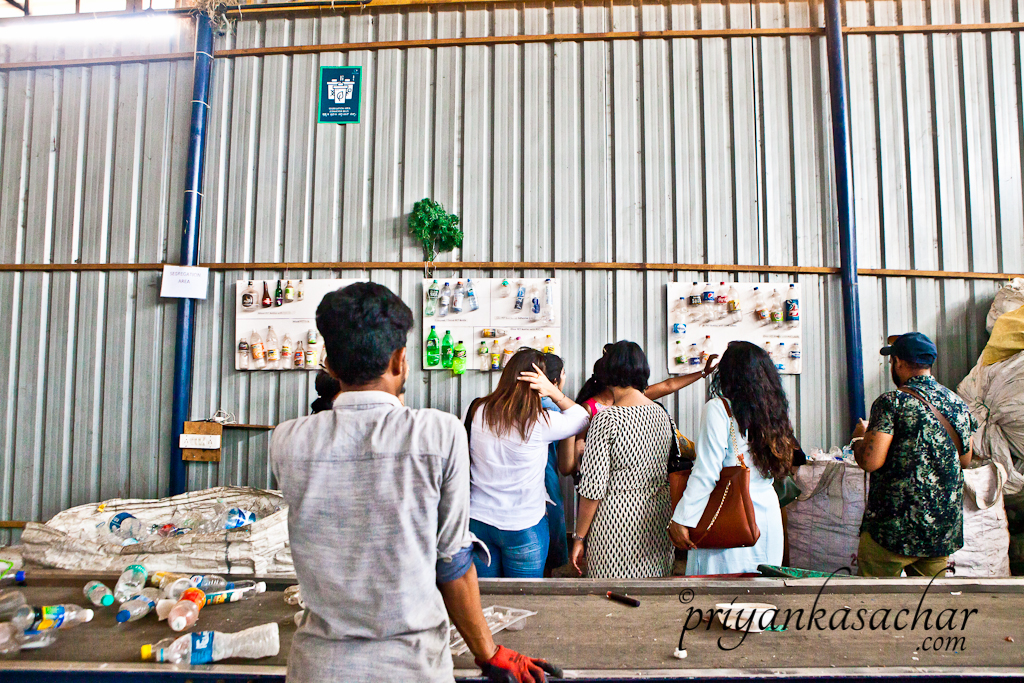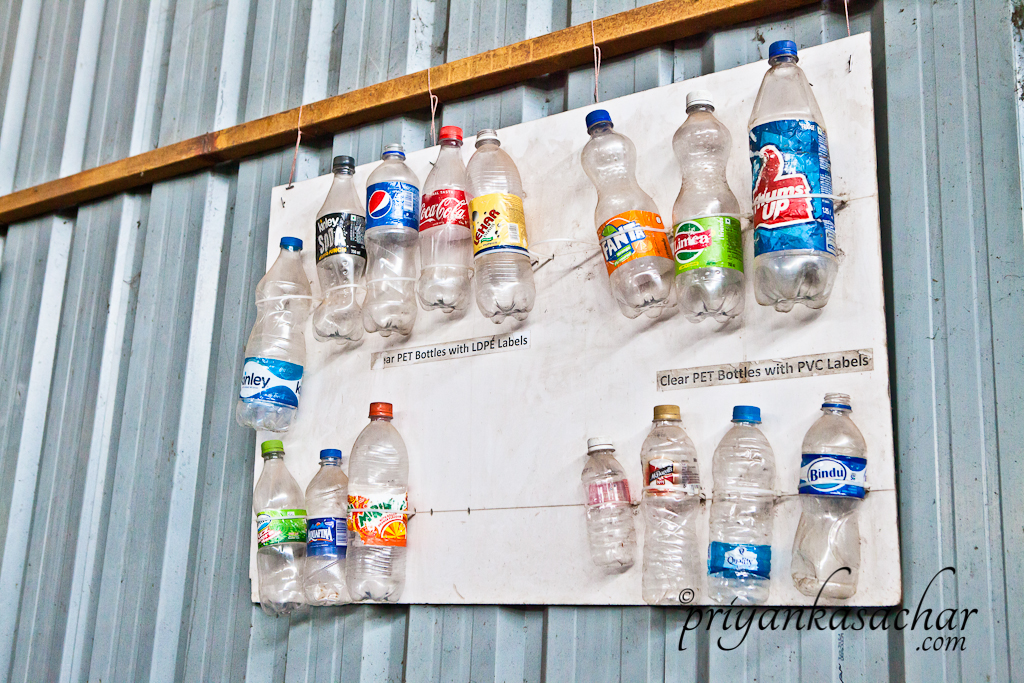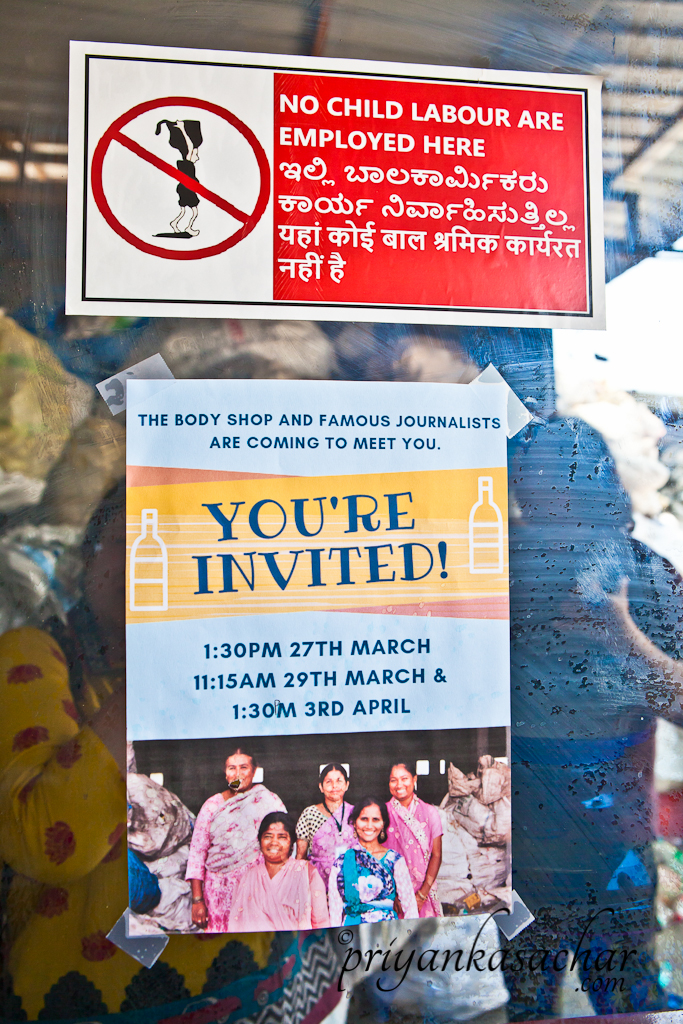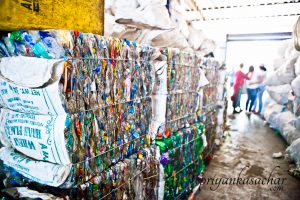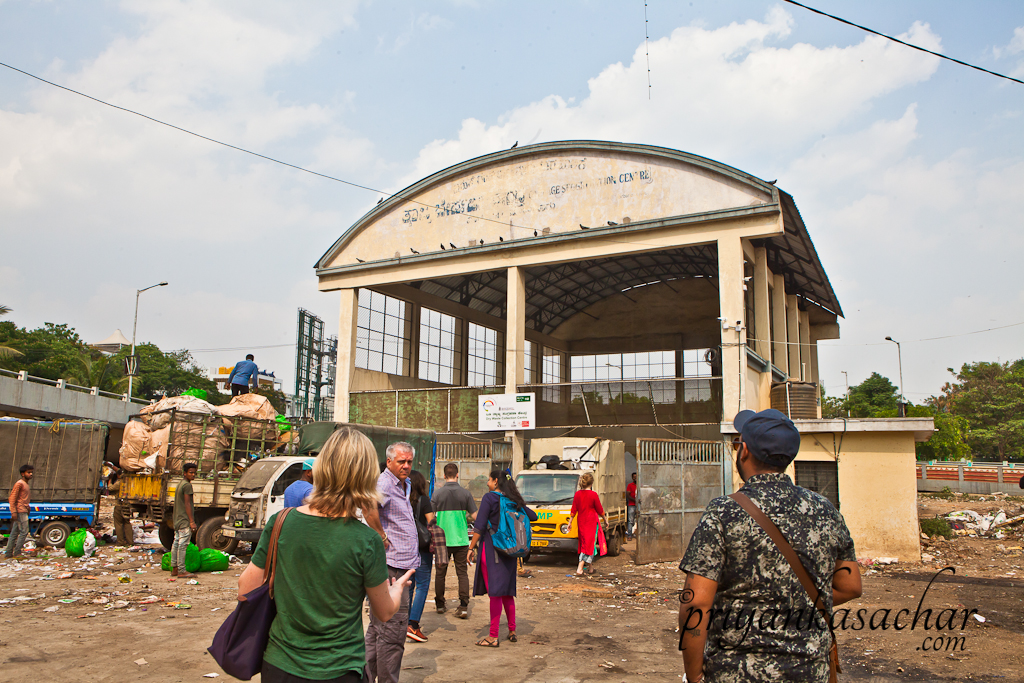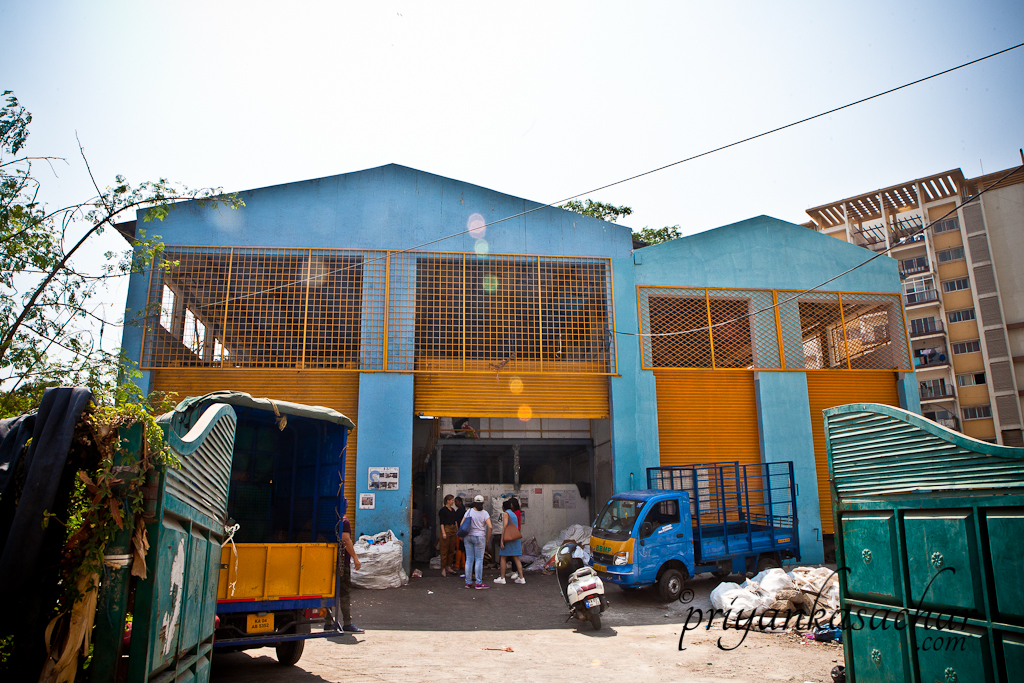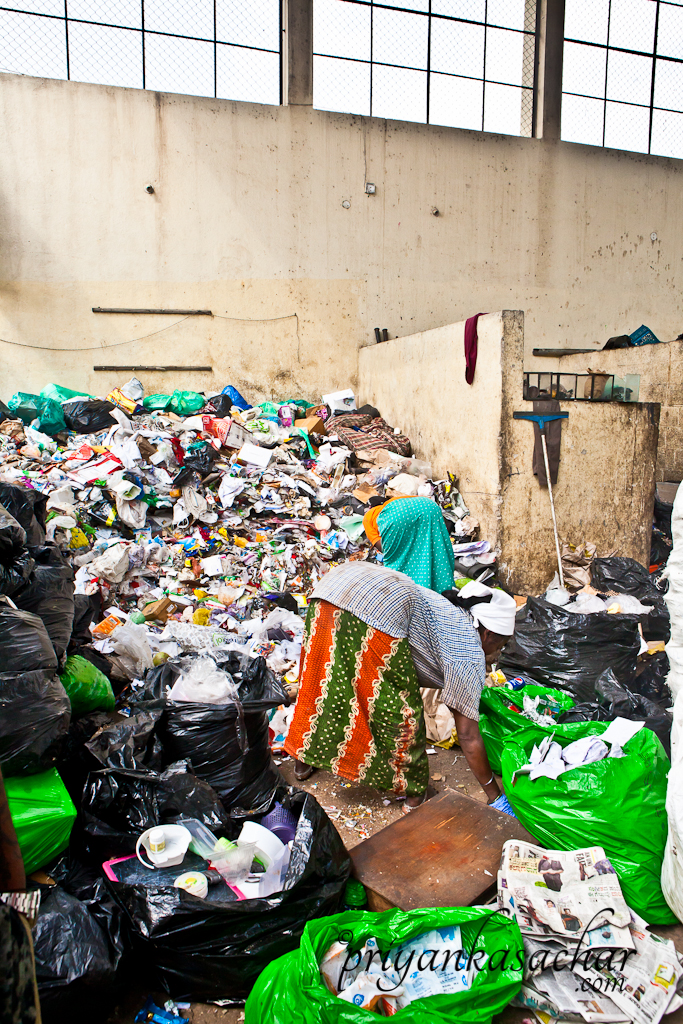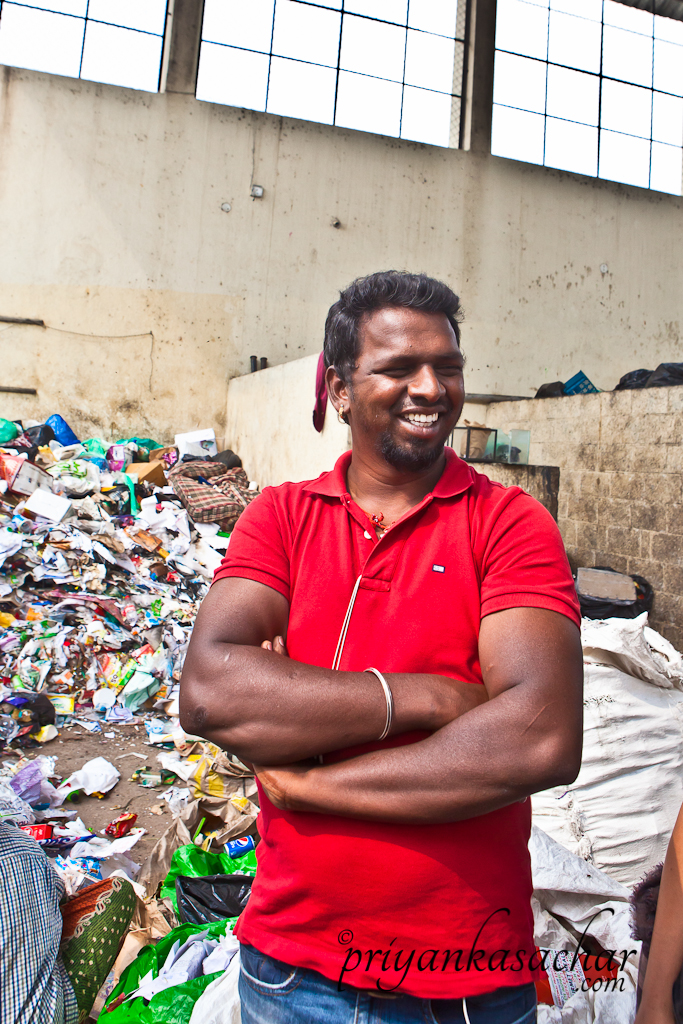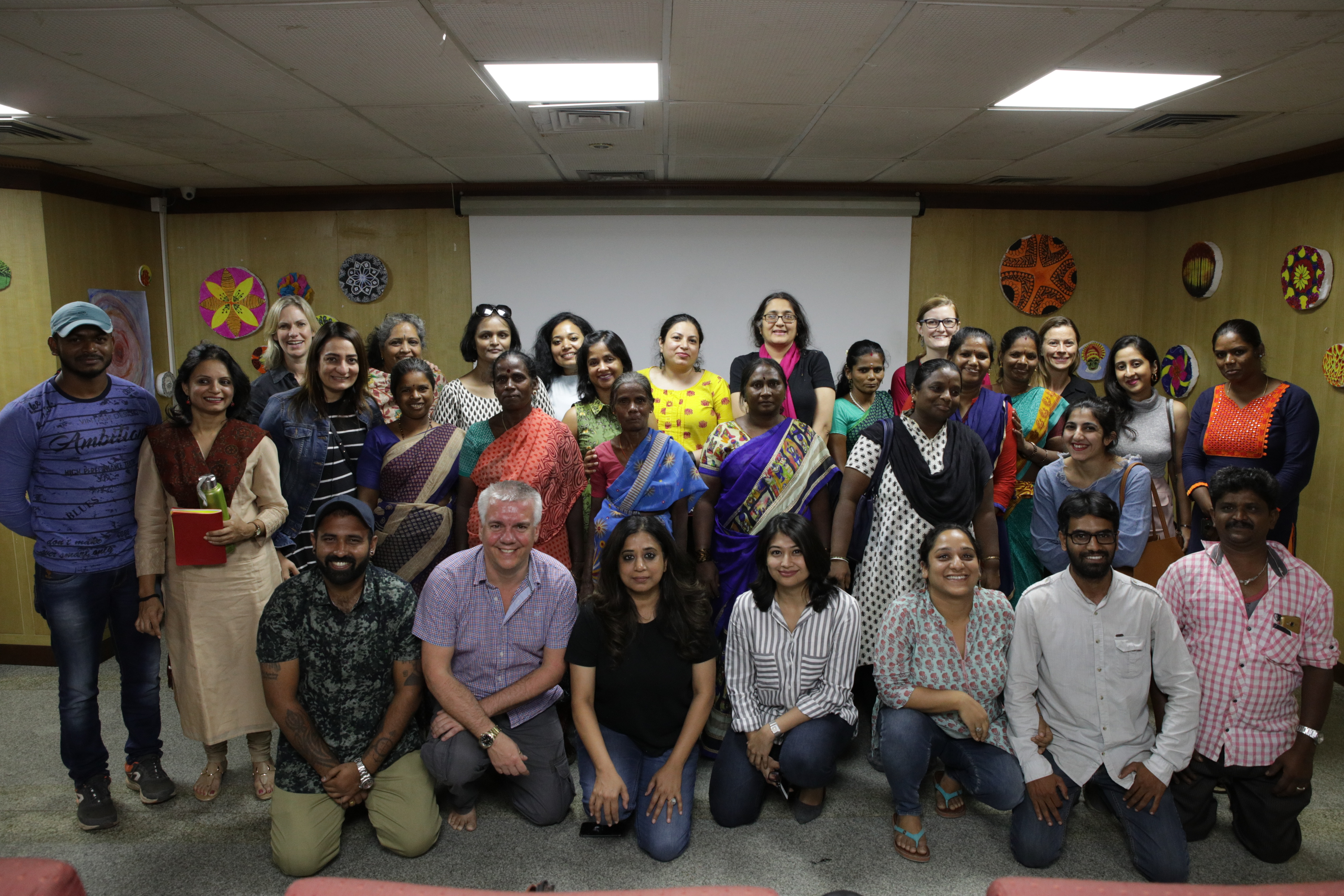I have always liked Body Shop products and have been buying them ever since I started earning. Be it their shower gels that can transport me elsewhere or the shea butters that ensconce moisture where it should be without giving the feeling of being sheathed in oil. So it was a NO BRAINER when The Bodyshop India invited me over to get a dekko at their first community trade recycled plastic initiative in Bengaluru.
We all know Our planet is drowning in plastic. The devastating effect of plastic waste on our oceans is well known. Here are just a few of the startling facts around it.
- 91% of the plastic on our planet is not recycled
- Plastic takes 1000+ years to decompose. Now obviously no one has actually checked if that even happens!
- All the plastic created on our planet, STILL exists.
- 1 truckload of plastic is dumped into the oceans every minute
- By 2050 we’ll have more plastic than fish
- In India 15000 tonnes of plastic is dumped every day
- 40% of the plastic dumped in India remains uncollected – clogging our waterways, contaminating our soils.
Now that I may have got your attention with the gory details, there is a human element to the plastic crisis as well, which is rarely discussed. Over 3 billion people live without formal waste management – that’s almost half the planet’s population. This has given rise to an informal waste picking economy. Some of the world’s most marginalised people pick untreated waste to try to make a living. These waste pickers, often live below the poverty line and work in appalling conditions. Yet they form a critical line of defence in stopping plastic from entering our rivers and oceans.
That’s why The Body Shop has launched its first Community Trade recycled plastic, in partnership with Plastics For Change, Hasiru Dala and Hasiru Dala Innovations. Community Trade is The Body Shop’s bespoke and independently-verified fair trade programme. This initiative was launched on World Fair Trade Day, and it is a commitment to tackle the plastic crisis differently. The Body Shop wants to fight more than plastic pollution – it wants to drive social change and help empower people at the same time.
Plastics For Change is a for-profit business that partners with local NGOs to bring price stability and access to global markets to waste pickers. It has a mission to change the social and environmental impact of plastic. The Body Shop will buy recycled plastic collected by the waste pickers in Bengaluru and introduce it into its packaging following a thorough cleaning process. This community trade of The Body Shop will support 2,500 waste pickers, providing the organisation with a fair price for the waste material, and a reliable income and improved livelihood opportunities for waste pickers.
Hasiru Dala or “green force” is a membership-based non-profit organization consisting of over 8,000 waste pickers and other informal waste workers. It strives to integrate marginalised informal waste pickers into the solid waste management framework by utilizing their expertise.
Hasiru Dala Innovations is a social enterprise committed to creating livelihoods and entrepreneurship amongst waste pickers, providing total waste management, urban gardening services and products for sustainable living.
So off I went in the last week of March (before the launch, oh yeah, very exclusive 😉 ) to witness this initiative first hand at Bangalore. We got comfortable at the Taj Westend, which is a fabulous property and it felt like one was staying within a forest with modern amenities. More on THAT separately. A bunch of us from the media/social media space landed there and were greeted with a sumptuous Asian meal at Blue Ginger to begin with. Then we met the Bodyshop team (UK & India), Andrew Almack, CEO, Plastics For Change, Nalini Shekar, Co-founder, Hasiru Dala, Shekar Prabhakar, Co-founder, Hasiru Dala Innovations and many others. We attended presentations by the Bodyshop team, Plastics for change and Hasiru Dala . I must say everyone came back very impressed with the work that’s being done. Plastics for change has streamlined the waste picking process a lot and has even made an app that helps waste pickers find the right person in the next step of the cycle – scrapdealers! Those who cant use smartphones, can use the IVR version of this process to do the same & find a scrapdealer who would give them a fair price. It was nice to see the ever smiling young CEO do all this with his smile intact. The Bodyshop – a brand that’s well known and respected, already has many firsts to its credit. “Trade not aid’ (1987), Cruelty free – no animal testing (1997), Global shea alliance (2011), and now the first community trade recycled plastic initiative, which I am sure will inspire many other brands to do the same!
On a personal level I have been segregating my waste since many years now. In fact all my organic waste goes back into my garden & the other waste goes to MCG waste pickers. At this point, I must acknowledge that the waste management practices being followed by the govt in Bangalore, Karnataka are way way better than the ones being followed in Gurgaon, Haryana or even Delhi the capital! Out here, hardly anyone’s concerned with segregation – neither the govt, nor most people. And even if some people segregate waste, MCG/NDMC/SDMC workers tend to actually mix it back together. We all requested Ms Nalini to impart her much needed knowledge to relevant people in our cities.
The next day we visited Shaktiman’s van & segregation unit, which is a facility on private land, properly funded, equipped with machinery & conveyor belt that help in segregation and workers that live/work on site. The waste they get is mostly already segregated by residents, making their job a bit less complicated.

Curious waste picker along with other employees of Hasiru Dala & Body Shop

The first aggregation centre with proper funding, employees, certifications

Segregation of dry waste

One of the workers at the Shaktiman Van unit
After this we visited an aggregation centre which is a facility run by Hasiru Dala, on a rented piece of land. Specific plastic comes here after customer’s orders for final quality control and baling. This centre had a lot of machinery and all of us were also handed over masks as well as gloves to try our hand at segregation. It was quite an experience. After the right quality of bottles are sifted from the entire plastic that comes here, another machine removes the paper wrappers. After this step, a few of the wrappers that aren’t removed in previous process are removed by hand. All the plastic is compacted ultimately.

Lee Mann, Sustainable Sourcing Manager Community Trade, The Body Shop

Tried our hands at segregating plastic

Various kinds of plastic

Removal of remnants of wrappers



Compacted plastic

Compacted plastic
After this we had a quick south Indian lunch and visited Krishna’s segregation facility which was an example of a facility provided by the govt (that too on temporary basis). No one lives at this site and it’s an example of how different this facility was, from the first one with funding. Needless to say, the difference was stark. This one had no machines, no conveyor belt, hardly any labour. Sifting through the garbage was a back breaking job, literally and the labour is very sporadic which is not really practical.

Govt facility for segregation of dry waste

Privately funded facility for comparison

Back breaking job

Krishna – Manager of facility
After Witnessing the plastic waste recovery process, we freshened up and headed to meet inspiring waste pickers to understand their challenges & hear their stories. We were greeted by a bunch of animated happy women who regaled us with their stories in Kannada, duly translated by Ms Nalini. It was very inspiring to meet these women who had smiled their way through thick and thin of life and made something of themselves with the help from Hasiru Dala.

Listening to the inspiring stories of the waste pickers

A group shot of the entire gang with the workers
The Body shop has taken a great initiative into this realm with an issue that’s very close to my heart and one that I fully endorse – that of reducing plastic pollution. This makes me like the brand even more. I would say it was a great trip that highlighted the global concern of plastic waste and enlightened us a lot. We all came back wanting to implement these tried and tested methods in our vicinity. Can’t wait for this practice to be implemented by other socially conscious brands as well.

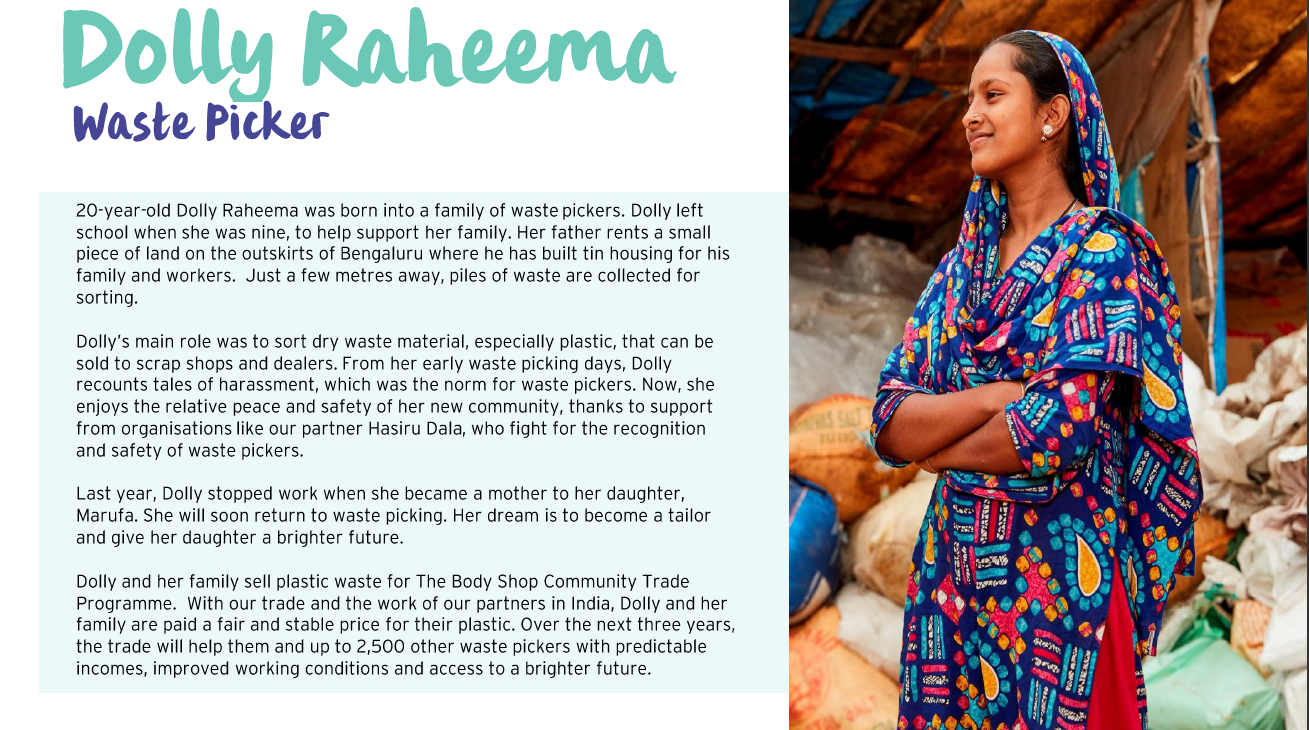
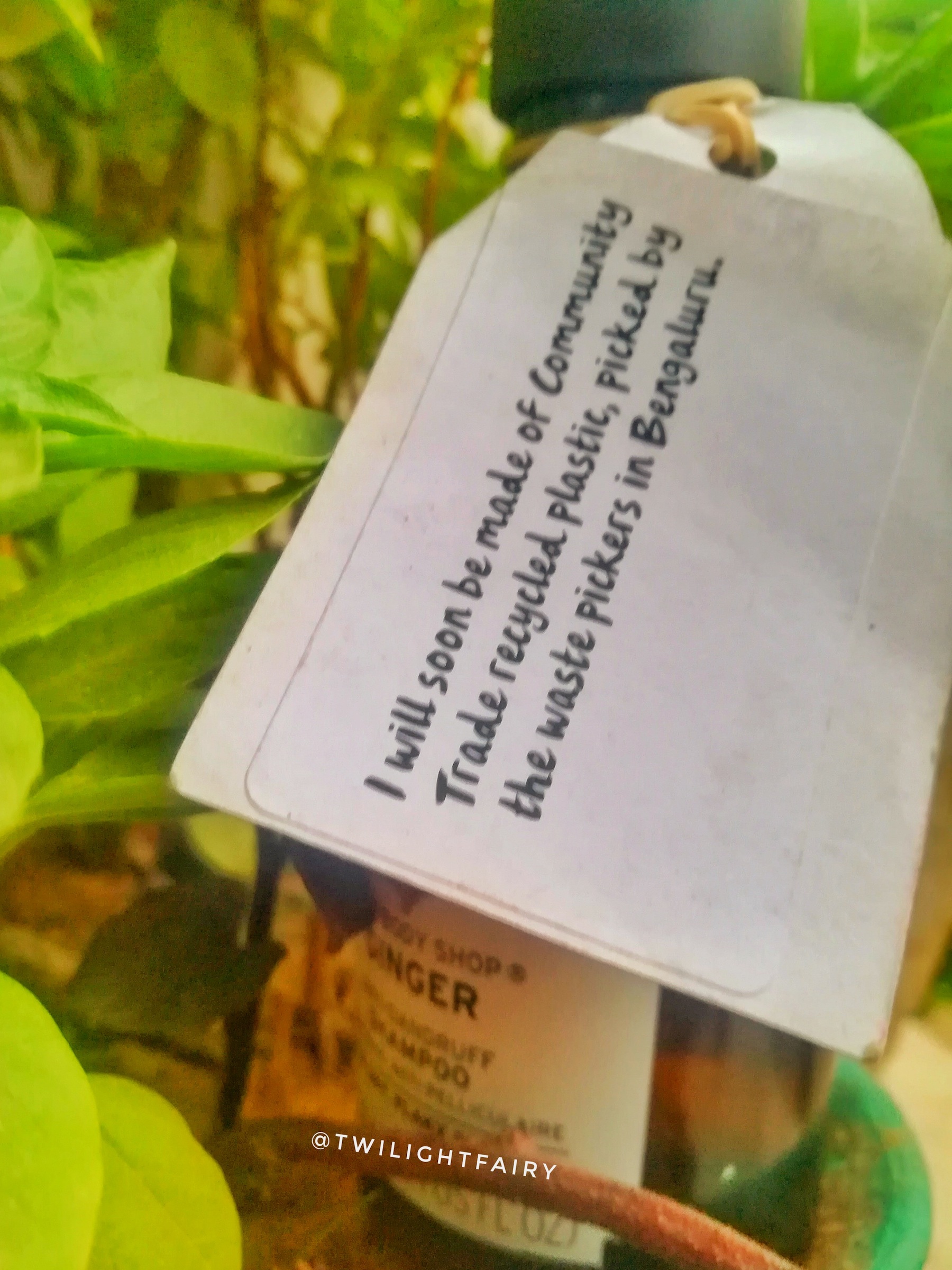
 e Recycled plastic over time. In three years, the aim is to purchase over 900 tonnes of Community Trade recycled plastic and help empower up to 2,500 waste pickers in Bengaluru. They will receive a fair price for their work, a predictable income and access to better working conditions. They will also get help in accessing services such as education, financial loans and healthcare.
e Recycled plastic over time. In three years, the aim is to purchase over 900 tonnes of Community Trade recycled plastic and help empower up to 2,500 waste pickers in Bengaluru. They will receive a fair price for their work, a predictable income and access to better working conditions. They will also get help in accessing services such as education, financial loans and healthcare.